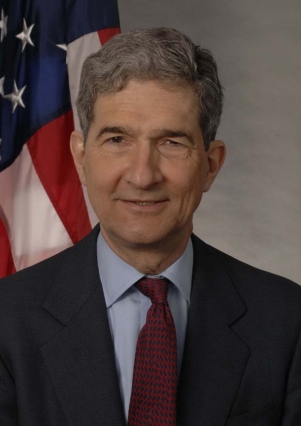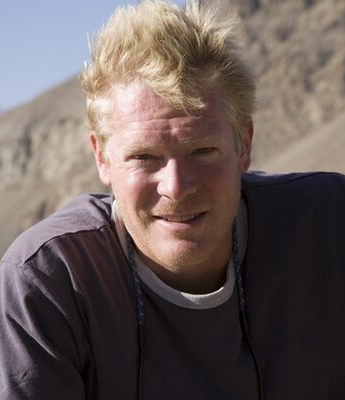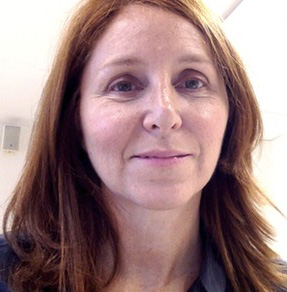About ICCS 2018
The International Conference on Complex Systems is a unique interdisciplinary forum that unifies and bridges the traditional domains of science and a multitude of real world systems. Participants will contribute and be exposed to mind expanding concepts and methods from across the diverse field of complex systems science. The conference will be held July 22-27, 2018, in Cambridge, MA, USA.
Special Topic - Artificial Intelligence: This year’s conference will include a day on AI, including its development and potential future. This session will be chaired by Iyad Rahwan of MIT's Media Lab.
Read up on past conferences.
Abstract Submission and Proceedings Publication
For presentation at the conference, authors should submit an abstract through EasyChair. All the accepted abstracts will be published in the online proceedings on the conference website. Authors of accepted abstracts may submit full papers for inclusion in the online proceedings. Full paper submission is optional. Make sure to register for the conference in addition to submitting to EasyChair.
Abstracts should be around 500 words and full papers around 8 pages. Please indicate during submission if you would like to present your work as a poster. Previously published work and multiple abstracts by the same authors may be submitted.
Important Dates and Deadlines
Abstract submission: March 12, 2018
Notification to authors: March 30, 2018
Early registration: April 27, 2018
Full paper submission: May 4, 2018
Revised full paper resubmission: June 6, 2018
Late abstract submission: June 15, 2018
Conference: July 22-27, 2018
ICCS Topics: Unifying Themes in Complex Systems
Sessions will be structured around both themes and systems.
The themes are:
Emergence
The relationship between components and collective properties and behaviors; the relationship of internal structure to external influence; multiscale structure and dynamics; self-similarity and fractals.
Complexity & Information
Defining and measuring complexity; characterizing the information necessary to describe complex systems; structuring, storing, accessing, distributing, visualizing and analyzing information describing complex systems; the dynamics of information and its computational characterization.
Dynamics & Self-Organization
Time series analysis and prediction; nonlinear dynamics and chaos; temporal correlations; the time scale of dynamic processes; spatio-temporal patterns; dynamic scaling; pattern formation; evolution, development and adaptation; interaction between internal dynamics and external inputs; programmability of self-organization.
Structures & Networks
Complex network topologies; multilayer and multiplex networks; dynamical networks; adaptive networks; temporal networks; network modeling and analysis; small-world and scale-free networks; connectivity and centrality; motifs, cliques and communities, modularity, degeneracy, redundancy, and substructure; network visualization.
Methodology
Computer simulation; agent-based modeling; data-driven research; machine learning; artificial intelligence; analytical methods; nonlinear statistics; soft computing; methods and tools for complex systems education.
And the system categories are:
Mathematical, Physical & Chemical Systems
Non-equilibrium processes; hydrodynamics; glasses; nonlinear chemical dynamics; complex fluids; molecular self-organization; information and computation in quantum and classical physical systems; supramolecular chemistry; spatio-temporal patterns in physical systems from subatomic to astrophysical.
Bio-Molecular & Cellular Systems
Systems biology; protein and DNA folding; bio-molecular informatics; membranes; cellular response and communication; genetic regulation; gene cytoplasm interactions; development; cellular differentiation; primitive multicellular organisms; the immune system; origins of life; biological networks in human health: protein-protein interaction, metabolic and gene regulatory networks; Systems pharmacology.
Physiological & Psychological Systems
Nervous system; sensorimotor systems; computational models of neural and cognitive function; perception, cognition, memory and action; psychological dysfunction; pattern recognition; learning and development; human machine interaction; autonomous mental development; neurocognitive networks.
Organisms & Populations
Population biology; collective behavior of animals; ecosystems; ecology; ecological networks; microbiome; speciation; evolution.
Human Social & Economic Systems
Social networks; socio-technical systems; computational social science; collective intelligence; corporate and social structures and dynamics; organizational behavior and management; urban development; city science; economies and markets; financial systems; risk management; globalization; military systems; global conflicts; social unrest; political networks; interactions between human and natural systems.
Engineered Systems
Design and manufacturing; nano-technology; bioengineering; modified and hybrid biological organisms; computer based interactive systems; multi-agent systems; artificial life; artificial intelligence; robots; communication networks; the Internet; traffic systems; distributed control; resilience; self organizing artifacts; complex systems engineering; biologically inspired engineering; synthetic biology; sensor networks.
Invited Speakers
Albert-László Barabási
(Northeastern University, USA)
Nassim Nicholas Taleb
(Real World Risk Institute, NYU Tandon School of Engineering, USA)
Marta González
(University of California Berkeley, USA)
Natalia Komarova
(University of California Irvine, USA)
Peter Turchin
(University of Connecticut, USA)
Larisa Rudenko
(Visiting Scholar at MIT, USA)
Iyad Rahwan
(MIT Media Lab, USA)
Simon DeDeo
(Carnegie Mellon University, USA)
Theresa Whelan
(U.S. Department of Defense)
H. Eugene Stanley
(Boston University, USA)
Stephen Wolfram
(Wolfram Research)
César Hidalgo
(MIT Media Lab, USA)
Sandy Pentland
(MIT Media Lab, USA)
Carmen Reinhart
(Harvard Kennedy School, USA)
Olaf Sporns
(Indiana University Network Science Institute, USA)
Stephen Grossberg
(Boston University, USA)
Michelle Girvan
(University of Maryland, USA)
Cameron Kerry
(MIT Media Lab, USA)
Irving Epstein
(Brandeis University, USA)
Ricardo Hausmann
(Harvard University, USA)
Steven Hassan
(Freedom of Mind, USA)
Spencer Wells
(The Genographic Project, USA)
Josh Bongard
(University of Vermont, USA)
Dick Cooper
(Harvard University, USA)
Plamen Ch. Ivanov
(Boston University, USA)
Stefanie Jegelka
(MIT, USA)
Francesca Rossi
(IBM, USA)
Hyejin Youn
(Kellogg School of Management, USA)
Workshops
Crowdsourcing and Collective Intelligence
Ágnes Horvát (Northwestern University, USA)
Mark Kon (Boston University, USA)
Blockchain Networks and Information Flow
Yaniv Altshuler (MIT Media Lab, USA)
Sandy Pentland (MIT Media Lab, USA)
Complex Systems in Bio Medicine: Embracing Complexity for Better Healthcare
Edna Pasher (Edna Pasher PhD & Associates, Israel)
Network Interventions for the Social Good
Flávio L. Pinheiro (MIT Media Lab, USA)
Cristian Candia (MIT Media Lab, USA)
Diana Orghian (MIT Media Lab, USA)
Causality and Information Flow
X. San Liang (Nanjing University of Information Science and Technology, China)
Risk, Fat Tails, and Precaution
Joseph Norman (Freelance complex systems and data scientist, USA)
Law and Complexity: Law, Cognition and Complexity
Enrique Cáceres Nieto (National Autonomous University of Mexico, Mexico)
Social, Political and Economic Events Through Social Media
Rosa M. Benito (Universidad Politécnica de Madrid, Spain)
Juan C. Losada (Universidad Politécnica de Madrid, Spain)
Shifting Paradigms: Complex Adaptive Systems In Neuroscience and Psychotherapy
Yakov Shapiro (University of Alberta, Canada)
J. Rowan Scott (University of Alberta, Canada)
Complex Systems: Literacy and Learning
Catherine Cramer (New York Hall of Science, USA)
Evelyn Panagakou (Northeastern MOBS Lab,USA)
Hiroki Sayama (Binghamton University, Center for Collective Dynamics of Complex Systems, USA)
Steve Uzzo (New York Hall of Science,USA)
Network Cascades: Unfolding, Modeling, and Control
Adilson E. Motter (Northwestern University, USA)
Complexity in Food Systems & Nutrition
Giulia Menichetti (Northeastern University, USA)
Kate Coronges (Northeastern University, USA)
Kayla de la Haye (University of Southern California, USA)
Matthew Lange (UC Davis, USA)
Jure Leskovec (Stanford University, USA)
Executive Committee
Conference Emeritus:
Yaneer Bar-Yam (New England Complex Systems Institute, USA)
General Chair:
Ali A. Minai (University of Cincinnati, USA)
Program Chair:
Dan Braha (New England Complex Systems Institute and University of Massachusetts at Dartmouth, USA)
Alfredo J. Morales (New England Complex Systems Institute, USA)
Carlos Gershenson (National Autonomous University of Mexico, Mexico)
Special Sessions Chair:
Marc Santolini (Northeastern University, USA)
Emma Towlson (Northeastern University, USA)
Sponsors Chair:
Kim Severino (New England Complex Systems Institute, USA)
Logistics Chair:
Sageet Braha (New England Complex Systems Institute, USA)
Elisabeth Perry-Montgomery (New England Complex Systems Institute, USA)
The MIT Media Lab is a supporting organization of ICCS 2018.
The HumanCurrent is the official podcast of ICCS 2018.
Listen to Episodes
Springer is the official publisher of ICCS 2018.
Conference T-Shirts
The ICCS 2018 Executive Committee would like to congratulate Brennan Klein as the winner of the T-Shirt Design Contest.
Media
Click image below to download the ICCS 2018 poster:


































